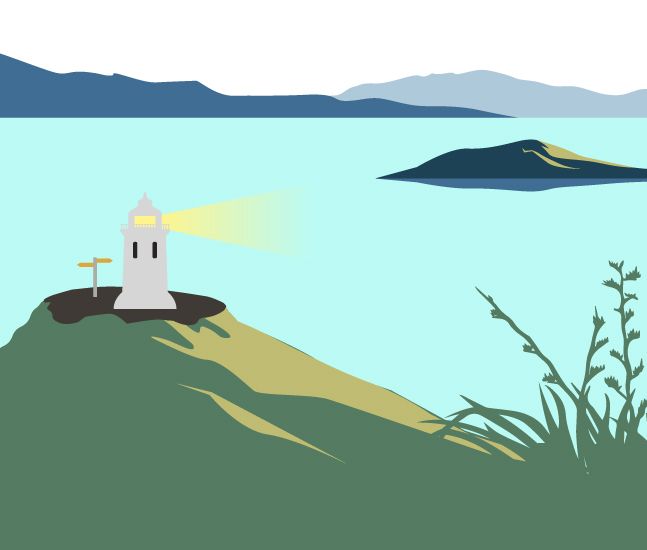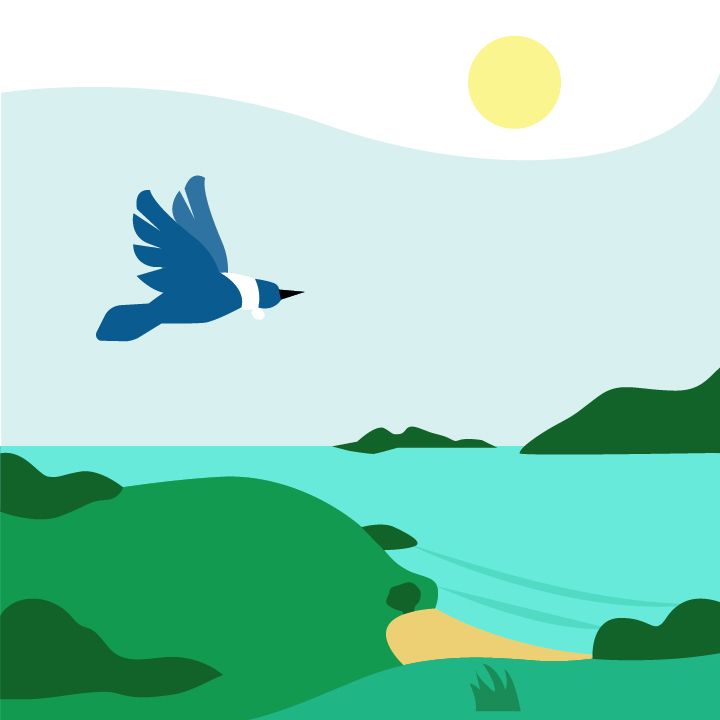Who are you and where are you from?
My father is Ngāti Maniapoto.
My mother is Ngāti Porou.
I have moved all around New Zealand but grew up in Christchurch, which is where home was for many years.
I currently reside in the Southland Region and I am 40 years old.
Tell us a bit about your background, your life experience.
I am a middle child of three girls, raised with a loving and supportive family on both sides. Although my parents separated when I was young, both biological parents have played an active role in my upbringing.
Mental health runs heavily through my maternal side of the whānau. My sister, mother, both have long-time chronic mental health. My grandparents, some aunties, cousins have also suffered with mental health. I have lost two first cousins to suicide, both of whom suffered severely with mental health issues.
I have had money living in posh areas, I have been poor living in state housing, I have been a single mother and in a loving relationship. I have worked through addictions, been suicidal, felt both supported and unsupported in some of my life choices, I have ended relationships with whānau that caused more harm than good. I have walked away from friends. I have hated my culture and loved my culture, I have done a lot of work on myself and am still continuing to grow each day. Building self-confidence is a continual journey.
As an adult, me and my tāne have five children (blended family). Three are biologically mine. I worked for the government for 15 years before deciding I wanted to give back to people in need. I have since worked for Victim Support dealing with victims of crime and trauma, Red Cross refugee resettlement in New Zealand and now I work for a kaupapa Māori mental health and addiction service providing vocational support to people that are impacted both directly and indirectly by mental health.
Have you experienced depression, anxiety and/or some hard times?
I've experienced anxiety. This got worse for me after I had children. When it happened earlier, I was not fully aware of it enough to warrant concern or a doctor’s visit.
Can you tell us how this come about and what happened?
There are three main times my anxiety was at an all-time high. It is hard to describe exactly what happened to get to that point but here are the four main times.
- My father who I was very close to (a daddy's girl) fell in love with a sarcastic, competitive narcissistic bitch who had no children of her own and was used to being #1 in every circle she was part of. This occurred when I was 14. Being around someone that constantly criticised my mother’s mental health issues to validate her own personal sense of self. Kicked my 15-year-old sister out of home because she was suffering with depression and reminded me every time I stood up for myself that I could return to my nutty mother and become a “no hoper”. I started to fear having mental health of any kind, I learnt to suppress my feelings, buy into the stigma and stereotypes of mental health and keep up appearances. I feel like the anxiety really started then when I became too scared to “be me”.
- The first time going to the doctor about it was after my first child was born. I can't point to the exact moment as I believe my anxiety built up silently in the background over a number of years. It didn’t help that I was 18 and had become a single mother to a little boy diagnosed with ADHD. I started noticing how worried I had become about what everyone thought about my parenting, my son's behaviour. I was comparing myself to every other parent with a neurotypical child, I felt like I had to constantly work harder and that stress snowballed creating unrealistic expectations and keeping me in a constant state of stress and worry. I managed to hide my anxiety for many, many years. To the outside I was confident, but it took a lot of work to face the world, keep up appearances, and naturally and understandably the time came where I completely burnt out during which time I felt I had to move my son to his grandparents to keep him mentally safe. (A move that inevitably made my anxiety worse and the first time depression was also mentioned.)
- The third time was pregnancy with my third child having had two boys prior, both who were born prematurely. I was riddled with anxiety through my whole pregnancy, scared of going through the NICU stay, the health complications, the potential impacts of prematurity on my baby. I suffered through the whole pregnancy, and just like the other boys, my third was born early as feared. By this stage, I was in my 30s and I feel the anxiety was even worse. My midwife and specialist put me on anxiety pills for the first time. I feel they didn’t help and was worried about the impacts on my unborn child so I took myself off them.
- When my grandfather was dying in his last year, I couldn’t answer my phone. I had rang him almost every week for most of my adult life but when he was nearing the end, the fear of someone calling me to say he had passed away made me crazy. At my worst, I would cry if my phone rang. It impacted my work, my social life. I spent most of my time in fight or flight mode (at least a year). The anxiety harmed my relationship at home and with my children. The fear of grief at the time got so bad that at times I couldn’t speak at all. I started getting brain fog at work. I couldn't remember things that at work I had been doing and teaching for 15 years. My weight piled on. When my boss, who was really supportive, pulled me aside and gave me some feedback, that was when I went to the doctor and started back on medication. This time the medication saved me. I was unable to fight the anxiety off on my own.
Can you tell us how you coped with these feelings?
When I had anxiety attacks, I didn’t turn to the medical professionals. I turned to my mum, my sister. People I know had been through it and survived. I don’t trust anyone when it comes to my mental state unless they have suffered with it themselves.
I see the difference working in mental health, the way kaimahi that have lived experiences share a deep understanding without spoken words versus people that have learnt the biological science of mental health via a text book.
I'm not in any way anti-medicine, but I believe for myself that it is the absolute last resort if I can no longer fight the burden. believe all pharmaceutical manmade medicine affects other areas of our body and sometimes makes a bigger mess in the long run, so I am selective when I take the risk.
At my worst, I clung on to every seed of hope, every uplifting word that had ever been spoken to me in my life, every amount of praise and words of encouragement that I had been given as a child.
I used those memories to fight the demon-like thoughts in my head. The ones telling me to give up and the feelings of worthlessness and debilitating fear. Words are powerful, and they kept me fighting. I often wonder how people with terrible upbringings and nothing but criticism and put-downs as memories are able to push through.
I turned to physical activity. Kick boxing was a saviour. There is no time to be scared or have negative thoughts when your adrenaline is pumping or you are gasping for breath because you are running and not at all fit. Being active releases dopamine and serotonin and improved my mood quickly
I went to nature, my fave was the beach. There's something about nature that made me realise that I am such a small part of an amazing world and that there was so much more to see and experience. Most times being in nature was able to calm me just by listening to the ocean or trees rustling. It has always been a good reset for me and a place I did my loudest crying.
What kind of support did you have during these times ?
Family members, doctor, friends, family friends, colleagues, kaumātua. I was also lucky to have friends that work in community mental health. Medication, mirimiri, holistic practitioners, naturopaths.
What would you say to anyone who is going through something like this themselves?
Creating āhurutanga (safe spaces) will save you when you are struggling. Continue to reach out to those you feel comfortable with – your friends, whānau, doctor.
Make sure you have a couple of people that are the type of people you can rock up to their homes at midnight in your PJs, that will put the jug on and expect nothing from you in those moments – they are your lifesavers.
If you are a visual person, surround yourself with photos, vision boards, words of affirmations.
Stay away from people with drama and surround yourself with positive people and calm people. When you are struggling and heightened, you are likely to pick up every ounce of bad energy around you.
If you have anxiety, don’t watch movies and documentaries, media that highlights your fears. Instead, remember ignorance is bliss and temporarily shut off those things.
Be informed – even if you disagree with medication, still talk to the doctor/ nurse about what the medication could do for you. There are times where doing something you don’t want to do is the difference between life and death.
Act fast, don’t wait till you are at the stage where everything is unmanageable and you have developed unhealthy coping mechanisms like addictions. It's harder to change when you have been suffering for so long.
Always take a support person with you to any mental health-related appointment. That way, you won’t feel bullied into doing something you don’t want to. It also means they can get the information too in case you forget what was said.
“Most times being in nature was able to calm me just by listening to the ocean or trees rustling. It has always been a good reset for me and a place I did my loudest crying.”
A wahine Māori discusses her experiences with anxiety and the challenges of motherhood. She finds solace and hope in her connections with whānau, friends and the natural world, highlighting the power of the environment as a source of healing and rejuvenation.




